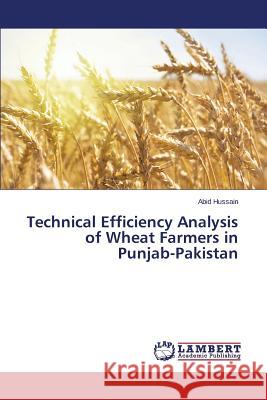Technical Efficiency Analysis of Wheat Farmers in Punjab-Pakistan » książka
Technical Efficiency Analysis of Wheat Farmers in Punjab-Pakistan
ISBN-13: 9783659676536 / Angielski / Miękka / 2015 / 280 str.
Technical efficiency in wheat production across major cropping zones of the Punjab (Pakistan) through stochastic frontier production function with Cobb-Douglas specification has been analyzed. The mean technical efficiency of wheat production was 78.2, 82.8, 80.2 and 50.1 percent in the mixed, cotton-wheat, rice-wheat and rain-fed zones, respectively. The results signify that there is a scope to increase wheat productivity through technical efficiency improvements under existing conditions of input use and technology. In the irrigated zones, number of ploughings for land preparation, use of chemical fertilizers and number of irrigation applications contributed positively to the crop production. The inefficiency in wheat production was due to sowing of poor quality produce as seed year after year, wheat crop acreage at the farms in irrigated zones and due to incidences of technical and financial problems in both irrigated as well as rain-fed zones. While, operational farm size and farmers contact with extension agents in the irrigated cropping zones and education level of the farmers in the rain-fed zone were technical inefficiency decreasing farmer characteristics.











